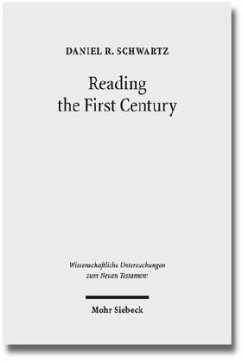The writings of Flavius Josephus provide much of what we know about the first century CE - which witnessed the birth of Christianity, the destruction of the Second Temple of Jerusalem, and the concomitant rise of rabbinic Judaism. However, Josephus was an author, not a video camera, and what he wrote often reflects much apart from what actually happened in the first century: Josephus works were affected both by his literary models and by current events, and they functioned in various ways for Josephus as an individual and also as a Jew and a Roman, writing in a time of tumult and radical change. Daniel R. Schwartz argues that by building from the bottom up - first establishing the text and its meaning, then moving on to issues of Josephus models, sources, and purposes - we may nevertheless reconstruct, with some confidence, the events and processes of this crucial era.

